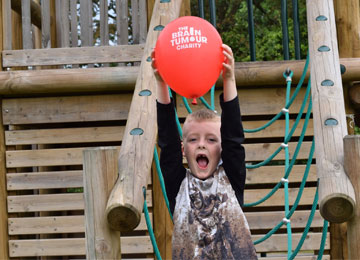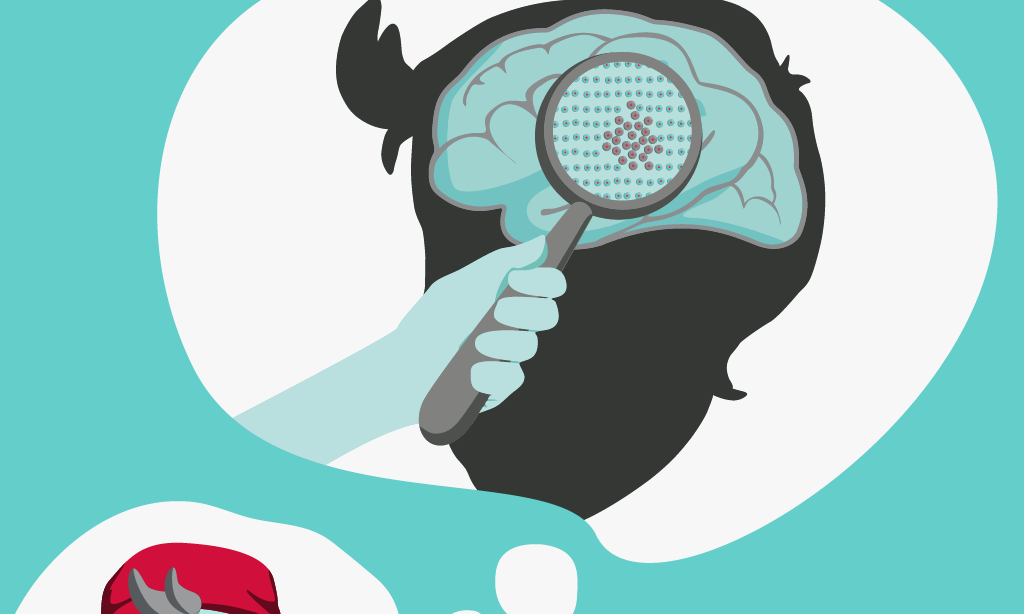Supporting peers of children with a brain tumour
It can be a really worrying and scary time for a child when their friend is diagnosed with a brain tumour. They may not know what a brain tumour is, what it means for their friend, or how to support them. They will probably have lots questions. However, while some children may ask questions endlessly, others may be too scared to ask.
This page includes:
- Tips for supporting the peers of a child with a brain tumour
- Advice for supporting secondary school children
- Advice from a primary school teacher on supporting peers
- Resources to help you with supporting peers
I think we definitely didn’t realise how serious it was, as children…but then equally you can’t necessarily expect kids to fully understand this either. It’s good for children to know the truth on a certain level and it’s about trusting them to deal with it.
Katie, friend of Rosie who was diagnosed with a Medulloblastoma aged eight
We’ve gathered together some tips to help you support the classmates or peers of a child who has been diagnosed with a brain tumour.
Tips for supporting the peers of a child with a brain tumour
As a teacher, it’s important that you:
- Remind their peers, that regardless of the diagnosis and absence from school, the child affected is still their friend and part of the class.
- Give facts about brain tumours to help the peers understand the situation. This is a good opportunity to dispel any potential misunderstandings or misconceptions. This should be alongside a discussion with the child and parents about what they want shared.
- Make sure the information you share is open, honest, yet age-appropriate. There are a number of resources, such as stories, that may help with this.
- Give the peers plenty of chances to ask questions. Reassure them that there’s no such thing as a silly question.
- Offer chances for the children to speak to you, someone appropriately qualified or someone with knowledge of the situation, (e.g. school nurse, counsellor, SENCO), away from others in the class. Here they may feel more comfortable to ask questions, and can explore their feelings.
- Consider what information will be shared with the parents of classmates. Questions are likely to come home, so you need to make sure that parents feel equipped enough to deal with them. It might be that a letter is sent home to parents, if the parents or the child affected are happy with this.
We know that at secondary school, finding time outside of the timetable to undertake an activity like this can be difficult. Perhaps you can use form time to talk and discuss potential questions. If the family would rather more people were told at once, it might be something that could be explored within an assembly. Also, think about seeking opportunities within lessons to talk about brain tumours if this feels relevant, e.g. science, or Personal, Social and Health Education (PSHE).

Her friends were really nice with her and supported her up to the operation, but once she’d had it I think they kind of expected her to snap out of it. Their view was that because it wasn’t cancerous, it wasn’t anything special. I think this is quite common, and people don’t realise what an enormous thing it is to have a brain tumour.
Sheena, mum of Phoebe, diagnosed with a low grade brain tumour
I think what’s really important is for adults to be honest with kids. Obviously that’s all age dependant.
Friend was diagnosed with a brain tumour at school
Advice from a primary school teacher on supporting peers
Emma, a primary school teacher who was diagnosed with a brain tumour at the age of 13, has put together some ideas for exploring brain tumours within lessons for children aged between five and 11 years old.
- Use YouTube, educational websites (e.g. BBC bitesize) and books to help your children understand what our brains are and how they work. Horrible Science: Bulging Brains by Nick Arnold and Brilliant Brain by Anna Claybourne are two really useful resources for children aged between 8 and 12 years old.
- Spend some time exploring feelings. It may be worth considering the following questions: ‘If we feel unwell, who do we talk to and what do we do?’ ‘When is feeling unwell something to worry about?’ This could then lead on to talking through symptoms of a brain tumour, using lots of visual aids, e.g. posters or a body map.
- You may want to use the Jake animations to help explain and explore symptoms and treatments for a brain tumour.
Remember, there is no ‘right’ way to do this. No matter how much you plan for the inevitable, sometimes emotions can get the better of children and teachers when discussing this difficult topic. This is a topic that can be re-visited, giving children reassurance and the chance for you to seek support from other staff if needed.
The idea of doing a talk like this seemed appropriate because it addressed a topic that might otherwise have seemed a bit scary and mysterious to the pupils. This dispelled any myths or worries the pupils may have had and, in turn, allowed them to feel more comfortable around the pupil in question.
School nurse, who was supported by Louise Robinson (CLIC Sargent Neuro-oncology Nurse Keyworker)

It’s so important that the children have an understanding of what’s happened. It’s been so touching to see how five-to-seven-year-olds are so compassionate when they understand a friend has had a hard time. When playing football, two of his friends, who are really good, set up goals for him to score, and they rejoice and celebrate when he gets it in the net, like they do on TV! One girl in his class helps him to pack his rucksack and reminds him to take home his drawings or water bottle!
Donna Forster, mother of Noah (6) diagnosed with a rare, low-grade brain tumour
Resources to help you with supporting peers
We’ve created some resources which may help you with supporting the classmates of a child diagnosed with a brain tumour. This includes a template letter that you could use to send home to parents of peers and some activity sheets. There are also some cards for the child to use when they’re tired and/or don’t want to keep explaining to their peers how they’re feeling or why they’re behaving the way they are.
Template letter
Dear Parents/Carers,
A child in your son/daughter’s class has recently been diagnosed with a brain tumour. At school, we’re going to be talking to your child about this and in particular, we’re going to run a session about what a brain tumour diagnosis might mean for the child affected and their peers. Your child will participate in this session.
Your child may talk about this at home and raise some questions. We’ll also be giving each child an activity sheet where they can write down any questions they may have – this is something they can bring home. If you have difficulty answering these questions, please come and speak to us at school. We’ll try to answer them but we can also contact the specialist nurse should further support be required.
Further information on many aspects of brain tumours can also be found at thebraintumourcharity.org. If you have questions, you can contact the Support Line on 0808 800 0004, or email: childrenandfamilies@thebraintumourcharity.org
Yours sincerely
Download the worksheet
Download the “Things your friend with a brain tumour might want you to know” cards
Support and Information Services
Research & Clinical Trials Information
You can also join our active online community.
In this section

Supporting you
Our Children & Families team offers support to children, young people and families affected by a brain tumour diagnosis. We’re here to help with any information you might need, answer your questions, listen and provide support.
